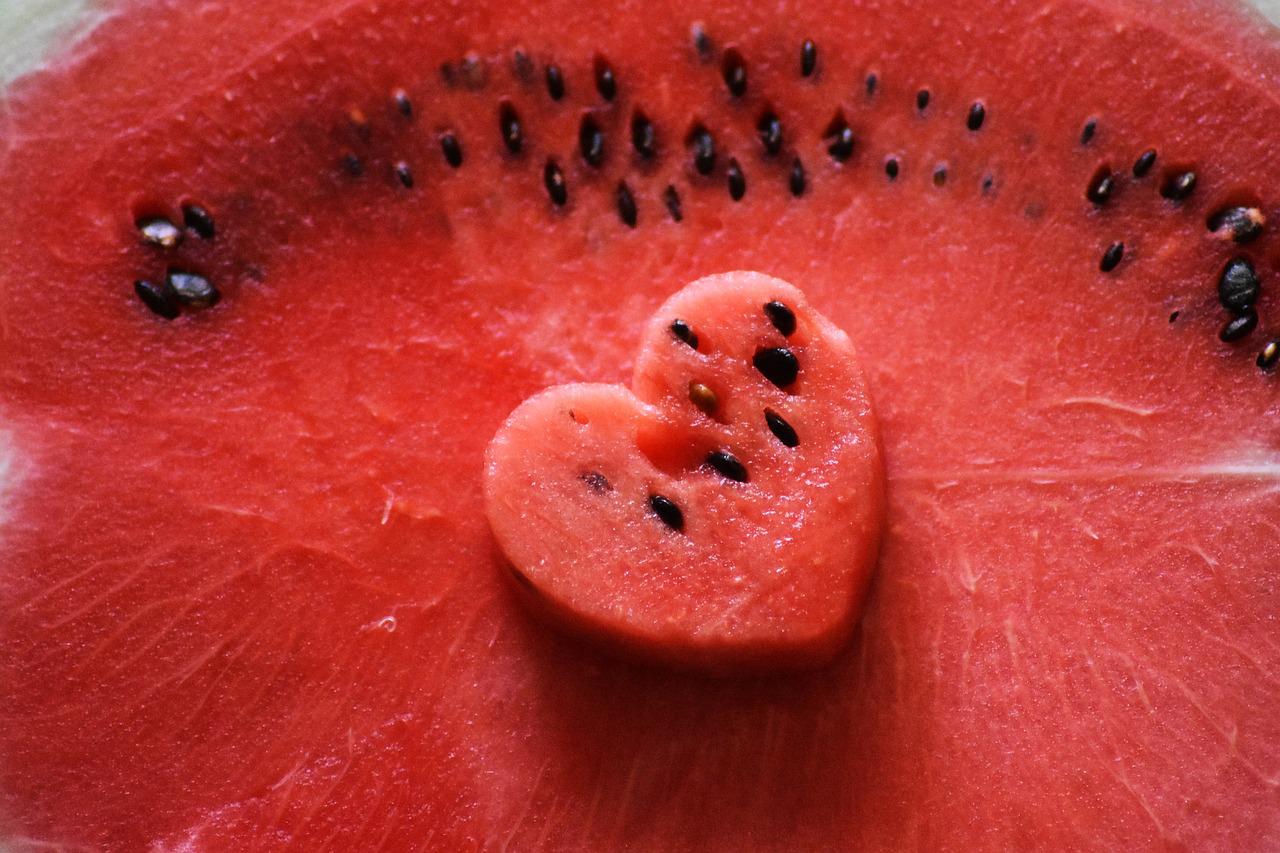I guess it’s hard to find a person who doesn’t like watermelon. It is sweet and refreshing, perfect for hot days. Does the rule that all that is good causes weight gain also apply to watermelon? Fortunately not! Not only is watermelon refreshing, delicious, and free from fat and cholesterol, it also offers many health benefits.
Check how many calories a juicy watermelon has, whether consuming watermelon is good for your figure and what nutritional values this juicy fruit has.
How much calories does watermelon have?
In 100g of watermelon, there is only 20-30kcal! It is the least caloric fruit. It has fewer calories than berries, raspberries or blackberries, which are used in diets. The number of calories in a medium-sized watermelon is comparable to 7 slices of cheese!
Watermelon calorific value depends on the variety
Watermelon ( Citrullus lanatus ) is a plant native to Africa, although it is now grown all over the world. Watermelons come in over 1,200 varieties. In Poland, you can meet the yellow variety, the calorific value of which does not differ from the well-known red version, and the black watermelon (color of the skin), which is slightly less caloric (25 kcal / 100g).
Watermelon glycemic index

Watermelon has a high glycemic index of 72 on a 100-point scale, so many diets are concerned that watermelon will make them fat. Meanwhile, one serving of watermelon (a glass) contains only 11g of carbohydrates. It, therefore, takes as many as 10 glasses of watermelon to reach the 100g flesh threshold used to measure the glycemic index of a food (the reason being the high water content of the watermelon).
A better indicator is to measure the effect of watermelon on blood sugar levels using the glycemic load – a measurement that takes into account the amount of carbohydrate present in a serving. Watermelon has a low glycemic load, only 4 on a 20 scale (for a 120g serving), but it is not recommended for diabetics.
Does watermelon make you fat?
Consuming watermelon seems like a great dietary idea. However, solely eating watermelon for a few days (called the watermelon diet) can help you get rid of some of the water it is holding in your tissues, but not fat. It will also allow your digestive system to take a break from the heavier menu. Watermelon has neither protein nor fat and is therefore not a dietary product.
Watermelon is filling and low in calories. If you count calories and wonder how much watermelon weighs and can you enjoy it as much as you want? The answer is yes. A slice of fruit is 350g on average and only 105kcal.
To take advantage of watermelon’s cleansing properties, you can simply toss it in a fruit salad or cut the watermelon into pieces.

Health properties of watermelon
A refreshing watermelon contains little sugar and a lot of water. It is not as nutrient-rich as other fruit but provides a good amount of vitamin C (10% of the recommended daily value).
It also contains 4% of the daily recommended amount of vitamin A. Another excellent ingredient is lycopene – one of the most powerful antioxidants that can be very helpful, for example, in preventing cancer. A watermelon can:
- prevent dehydration: it consists of 92% of water, which is why it hydrates well, not only on a hot day,
- help fight inflammation and thus disease (thanks to antioxidants such as lycopene),
- reduce muscle soreness thanks to the content of L-citrulline,
- prevent the formation of kidney stones: a large amount of water provided by watermelon allows harmful substances to be diluted in the urine,
- strengthen the immune system: thanks to a large amount of vitamin C,
- positively affect eyesight: watermelon flesh is very rich in vitamin A, an antioxidant that can help maintain healthy eyesight,
- support blood flow in the vessels, which can support erection,
- Help you lose weight: Watermelon is mainly cleansing water and vitamins, and it also makes you feel full.
It is worth eating watermelons because only one glass of pulp contains:
- 11mg calcium
- 15 mg of magnesium
- 17mg phosphorus
- 170mg of potassium.
A medium-sized watermelon contains about 9 g of fiber.
Can you eat watermelon seeds?
The seeds are the part of the watermelon that has the most nutrients. There you will find protein, unsaturated fatty acids, B vitamins, magnesium, zinc, phosphorus, calcium, potassium, and manganese.
Watermelon seeds are rich in minerals, protein, and fatty acids. This means that they are good for skin elasticity, prevent hair loss, maintain proper blood sugar levels and prevent bone degradation. Watermelon seeds are used to make an oil that has anti-inflammatory and anti-body effects.
Watermelon seeds are recommended to athletes due to their influence on better oxygenation of the muscles, which influences their more efficient regeneration (watermelon seeds contain arginine and glutamic acid).




